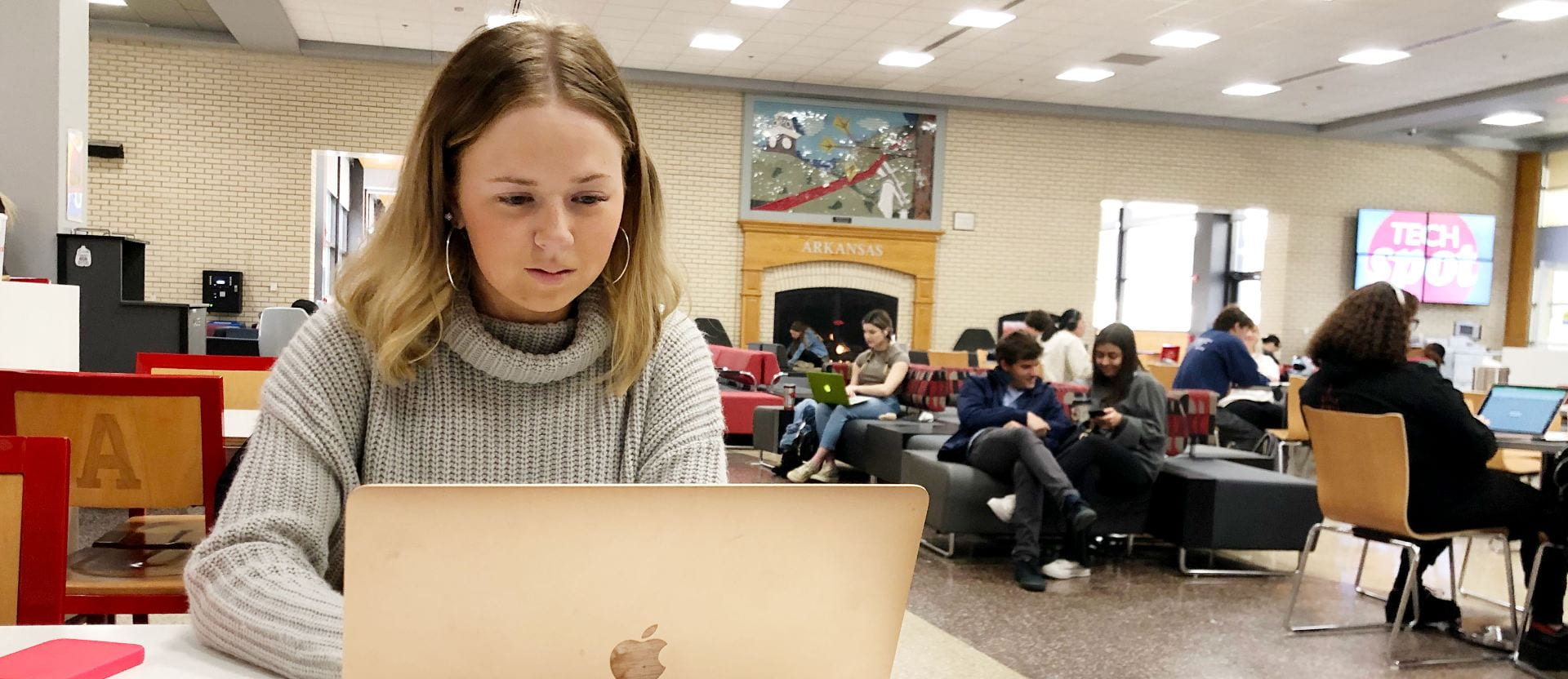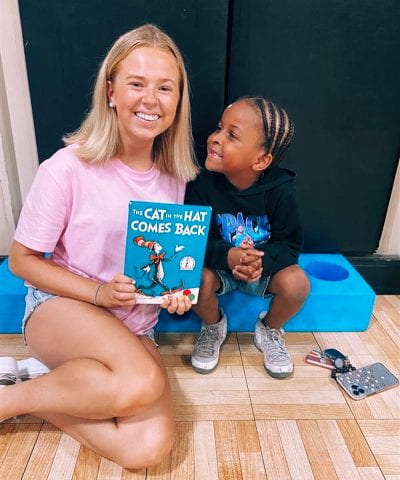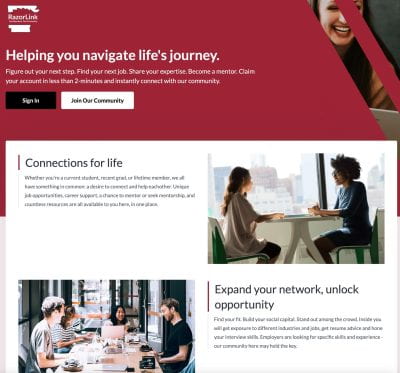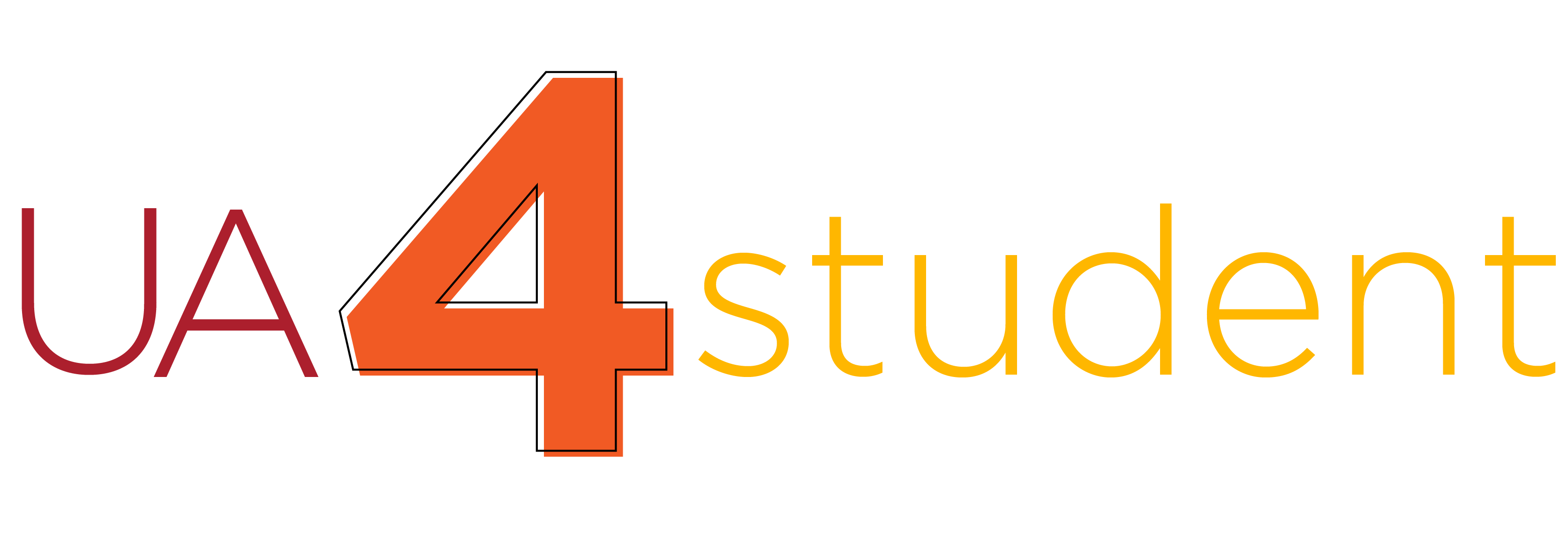
“What’s next?”
Even as a first-year-student, I frequently fear the future. Last week was spring break, and while I should have been relaxing on the beach, this two-word question loomed in my mind. Most days, I spent hours studying, performing tasks for my extra-curricular organizations, and scouring the internet for internship listings to try and calm my fears.
 Though I know I am putting in the effort to succeed, I recognize that my efforts are often misplaced. At 18 years old, I do not have the experience or knowledge to know what my future holds or how to work toward achieving my goals. Thus, I often force myself into a “workaholic” mode without asking for advice from more experienced people.
Though I know I am putting in the effort to succeed, I recognize that my efforts are often misplaced. At 18 years old, I do not have the experience or knowledge to know what my future holds or how to work toward achieving my goals. Thus, I often force myself into a “workaholic” mode without asking for advice from more experienced people.
I currently serve as a content creator for the Division of Student Affairs communications department. Through this job, Scott Flanagin, executive director of communications, introduced me to Razorlink, a site dedicated to fostering student and alumni relationships.
Razorlink was launched in 2020 at the center of the COVID-19 pandemic. It was initially a partnership between the Arkansas Alumni Association, the Career Development Center and Walton College. They then brought in other campus partners such as the Division of Diversity, Equity and Inclusion, the Student Success Center, and at least one representative from every academic college.
Upon hearing of the site, I created a Razorlink account with my university information. It first prompted me to answer questions about my passions and interests. I then added a profile photo and personal information before finally writing about what drives me and adding career focuses I was interested in.
Immediately, Razorlink pointed me to dozens of groups and alumni with similar interests. Lisy McKinnon, interim director of Alumni Communications and Marketing, hopes Razorlink will be a tool for students to practice interaction.
“I’ve noticed that students are reluctant to initiate contact,” McKinnon said. “Not just with alumni, faculty or staff, but sometimes with each other too. Our goal is to scale social capital, so that people can build network.”
The alumni on Razorlink can offer advice on several topics, including career connections, work locations, resume review and interviewing. The site also houses discussion groups. Some are more identity-focused and some are more college-focused.
Since I am somewhat considering attending law school, I was pointed to a legal professionals and students community group. McKinnon told me that it does not just include people who went to the University of Arkansas School of Law but also those who received their undergraduate from U of A and went to law school elsewhere.
 In addition to career advice, the team behind Razorlink often hopes it will foster a sense of community.
In addition to career advice, the team behind Razorlink often hopes it will foster a sense of community.
“That will hopefully be a pivotal piece of the puzzle,” McKinnon said. “The university has spent the past 2+ years really delving into what it means to belong, and I think part of belonging is seeing people who look like you or share a similar identity as you.”
Erica Estes, assistant vice-chancellor and executive director in the University Career Development Center, was part of the implementation team for Razorlink and also hopes it can help people develop relationships.
She specifically emphasized the potential of it being a tool for first-year students before they start classess that can help them answer questions about class size or housing.
“My hope is that it creates a sense of belonging,” Estes said. “It can be overwhelming for students, especially when they fits come to the university.”
A student coming through orientation might join the platform and a group of the college they are considering with current students and alumni. The site is also helpful for developing alumni relationships. McKinnon called them “extended family.”
“Alumni are the reason we’re here,” she said. “Students are here for four years, and educating them is extremely important to a civil society, but in terms of the relationships we build, people are alumni for so much longer than they are students.”
Estes added to this thought, saying that alumni who actively see what is happening on campus are much more likely to engage with the campus in various ways, including in a giving capacity. However, Estes hopes the platform is a way for more recent alumni who do not have the capacity togive back financially to give back in a non-monetary way.
After graduating from the U of A, Estes moved to Baltimore. Since she moved before the wide-scale use of the internet, she did not have an efficient way to connect with other Arkansans in the Baltimore and D.C. area. There were a lot of them, but it was difficult to find them, and with a site such as Razorlink, she would have easily been able to connect.
I am still exploring Razorlink, and I am very confident I could sit here exploring it for hours on end. There are additional resources such as short pathways, including one that guides you to “design your life” and encourages you to think holistically about the “bigger picture,” not just one job title.
It is undeniable that the future is scary. But it is also undeniable that the U of A is full of involved and accomplished alums who are dedicated to helping students succeed!
